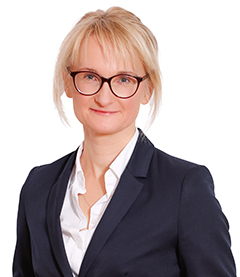-
Audit
Auditing increases the reliability of your company information for decision-makers and users – it’s a matter of credibility and trust.
-
Assurance
We have established Assurance Service Lines in the area of audit-related consulting so that we can support you in identifying the risks and challenges relevant to you.
-
Technology consulting
Receive customised technology consulting
-
Operational excellence and restructuring
Advisory for businesses, whatever situation they’re in
-
Deal Advisory
We’ll advise you on national and international transactions
-
Valuation & economic and dispute advisory
We’ll value your business fairly and realistically
-
Tax for businesses
Because your business – national or international – deserves better tax advice.
-
Private Clients
Wealth needs trust, transparency and clever minds. We can do that!
-
Business Process Solutions
Measuring and utilising company data
-
Real estate tax
Real estate taxation – we provide answers to your questions!
-
Tax for financial institutions
Financial services tax – for banks, asset managers and insurance companies
-
Tax in the public sector
Advisory and services for the public sector and non-profit organisations
-
Employment law
Representation for businesses
-
Commercial & distribution
Making purchasing and distribution legally water-tight.
-
Compliance & directors’ liability
Avoiding liability at your company
-
Inheritance and succession
Don’t leave the future to chance.
-
Financial Services | Legal
Your Growth, Our Commitment.
-
Business legal
Doing business successfully by optimally structuring companies
-
Real estate law
We cover everything on the real estate sector.
-
IT, IP and data protection
IT security and digital innovations
-
Litigation
Designing solutions – we’re your partner for successfully resolving disputes
-
Mergers & acquisitions (M&A)
Your one-stop service provider focusing on M&A transactions
-
Restructuring & insolvency
Securing the future in the crisis.
-
Energy, telecommunications and public economic law
Comprehensive advice in energy law, telecommunications law, public commercial law & regulated markets.
-
Technology consulting
IT enables business
-
IT assurance
Rapid technological change is a sign of our times.
-
Tax Technology
Digitalisation for tax and finance departments
-
IT, IP and data protection
IT security and digital innovations
-
Public sector
Digitalisation, processes & projects
-
Cyber Security
Advice and services for the mid-market in Germany
-
Security consulting
Stay on course, even in stormy times
-
Sustainability strategy
Laying the cornerstone for sustainability.
-
Sustainability management
Managing the change to sustainability.
-
Legal aspects of sustainability
Legal aspects of sustainability
-
Sustainability reporting
Communicating sustainability performance and ensuring compliance.
-
Sustainable finance
Integrating sustainability into investment decisions.
-
International business
Our country expertise
-
Entering the German market
Your reliable partners.
An asset management GmbH is a corporation without any operating business of its own whose purpose is to manage its own assets and to derive profits from these assets.
Since the flat-rate withholding tax was introduced, investors have increasingly focused on the asset management GmbH, particularly since private investors are denied deducting income-related expenses, and offsetting losses has also been heavily restricted. But other advantages, such as preferential treatment of profits from shares, also make the asset management GmbH an interesting option for many investors.
Let’s compare a private capital investor with the asset management GmbH:
The private investor
Since the flat-rate withholding tax was introduced, capital gains (simply put dividends and gains on disposal) are subject to fixed-rate withholding tax directly at source. The withholding tax is withheld by the custodian bank and transferred straight to the tax office. It is taxed at 25 percent plus solidarity surcharge, and church tax as applicable. The tax-free savings allowance, which is currently 1,000 euros, can be applied, but all income-related expenses associated with the investment income are considered discharged.
The asset management GmbH
The investments are made through an asset management GmbH. The separation principle applies, that is, the asset management GmbH is itself a taxable entity and independently pays corporate income tax on its profits at 15 percent, plus 5.5 percent solidarity surcharge, and trade tax at 12-17 percent, depending on the municipality entitled to charge the tax.
However, only 5 per cent of the profits from the sale of shares in a GmbH are to be taken into account (Section 8b (2) and (3) of the Corporate Income Tax Act [Körperschaftsteuergesetz – KStG]). This corresponds to a tax liability of around 1.5 percent. Costs of disposal are not deductible for tax purposes.
The participation exemption under Section 8b KStG can also be applied to dividends. The condition for the income being treated as almost tax-free is that at the beginning of the calendar year in question, the asset management GmbH holds at least 10 percent of the share capital or nominal capital of the profit-making corporation for corporation tax purposes and 15 percent for trade tax purposes. Realistically, you do have to consider that having a 10 or 15 percent stake in a larger listed company is rather rare.
But if liquidity is to flow back from the asset management GmbH to private investors, this is generally only possible by way of a distribution, which in turn triggers tax.
Furthermore, it should be noted that the corporation must first be set up, which involves formation costs, payment towards the share capital and registration costs. In addition, annually recurring costs for financial accounting, preparing and publishing (or filing) financial statements, preparing and submitting tax returns and reviewing tax assessments or applying for and renewing LEI codes each year must be taken into account.
To keep these costs in proportion, further planning should only be continued if a long-term strategy with the intention of operating as a commercial investor on a permanent basis has been established. The investment is supposed to serve the long-term accumulation of capital. The invested amount should therefore not be needed in the short term for “personal reasons”. When investing via a GmbH, both the invested amount and the generated income normally remain in the GmbH. No capital repayments or profit distributions are made during the year.
At this point, many other capital investments can be highlighted, and their benefits and drawbacks for tax can be compared.
Long-term strategy often advantageous from a tax perspective
All in all, it can be said that, from a tax point of view, when pursuing a long-term investment strategy (including taking into account establishment and running costs), in many ways using an asset management corporation makes sense. But one last aspect should not be ignored – calculations should always include the fact that the return of funds to natural persons as a distribution is subject to 25 percent withholding tax plus solidarity surcharge, and church tax as applicable.


